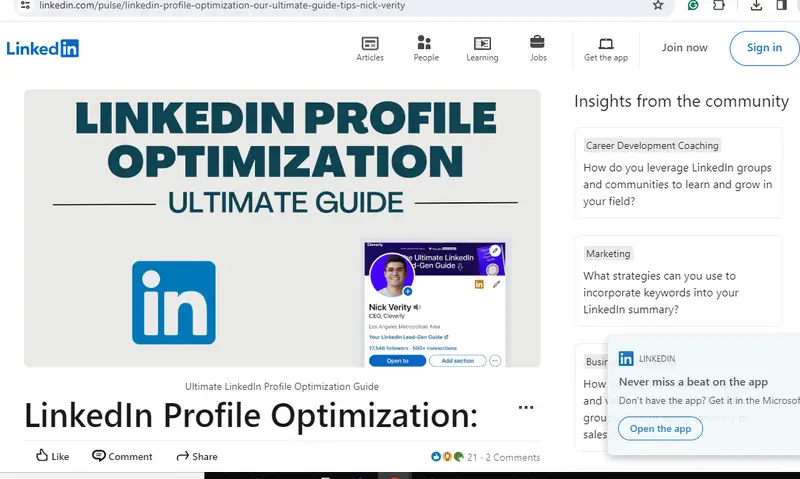Remote Work
10 Secrets to Landing Your Dream Remote Job
10 Secrets to Landing Your Dream Remote Job
The benefits of remote work are numerous, from increased flexibility and autonomy to improved work-life balance and reduced commuting time. However, landing your dream remote job isn’t as simple as sending out a few applications and hoping for the best. It requires a strategic approach, and in this article, I’ll unveil the 10 secrets to help you land your dream remote job you’ve always wanted.
Secret #1: Identify Your Ideal Remote Role
The first step in landing your dream remote job is identifying what that dream role looks like. Take some time to assess your skills, experience, and interests. What kind of work do you enjoy doing? What are you naturally good at? Which industries align with your values and passions?
Once you have a clear picture of your ideal remote role, start researching industries and companies that offer remote work in your field. This targeted approach will help you focus your job search efforts and increase your chances of finding the perfect match.
Read: The Best and Worst Aspects of Remote Work: Is It Right for You? Plus Tips to Thrive
Secret #2: Optimize Your Online Presence
 Your online presence is often the first impression you make on potential employers. That’s why optimizing your LinkedIn profile and other professional profiles is important to showcase your remote work skills and experience. Start by updating your headline and summary to highlight your remote work expertise and the value you bring to potential employers.
Your online presence is often the first impression you make on potential employers. That’s why optimizing your LinkedIn profile and other professional profiles is important to showcase your remote work skills and experience. Start by updating your headline and summary to highlight your remote work expertise and the value you bring to potential employers.
Ensure your profile is complete, with a professional headshot and detailed descriptions of your past roles and achievements. Don’t forget to showcase any remote-specific skills or certifications you’ve acquired, such as proficiency in virtual collaboration tools or experience managing remote teams.
Secret #3: Network, Network, Network
Networking is key to unlocking hidden job opportunities and getting your foot in the door with your dream remote employer. Start by attending virtual industry events and conferences, where you can connect with like-minded professionals and learn about the latest trends and best practices in your field. Join remote work groups and forums on LinkedIn, Facebook, and other platforms to engage with the remote work community and stay on top of job openings and referral opportunities.
Don’t be afraid to reach out to connections who are already working remotely, as they can offer valuable advice and insights on how to navigate the remote job market. Remember, the more people you know and the more visible you are in your industry, the more likely you are to land your dream remote job.
Secret #4: Tailor Your Resume and Cover Letter
When applying for remote jobs, it’s essential to tailor your resume and cover letter to showcase your remote work experience and skills. Start by highlighting any previous remote work experience you have, even if it was just a temporary arrangement or a side project. If you don’t have direct remote work experience, emphasize transferable skills that are relevant to remote work, such as strong communication, self-motivation, and time management.
In your cover letter, demonstrate your ability to work independently and communicate effectively by providing specific examples of how you’ve collaborated with remote teams or managed projects from afar. Finally, make sure to customize your application for each remote job application, highlighting how your skills and experience align with the specific requirements of the role. By tailoring your application, you’ll stand out from the competition and demonstrate your genuine interest in the position.
Secret #5: Prepare for Virtual Interviews
 In remote workspace, virtual interviews are the norm. To ace your virtual interview and land your dream remote job, it’s important to prepare in advance. Start by testing your technology, including your computer, camera, microphone, and internet connection, to ensure everything is working smoothly.
In remote workspace, virtual interviews are the norm. To ace your virtual interview and land your dream remote job, it’s important to prepare in advance. Start by testing your technology, including your computer, camera, microphone, and internet connection, to ensure everything is working smoothly.
Set up a clean, well-lit professional background that is free from distractions. Practice common remote job interview questions, such as “How do you stay motivated and productive when working remotely?” or “Can you describe your experience collaborating with remote teams?” Be ready to showcase your communication skills and enthusiasm for the role by providing specific examples of how you’ve excelled in previous remote work experiences.
Secret #6: Demonstrate Your Remote Work Capabilities
During the interview process, it’s essential to demonstrate your remote work capabilities to potential employers. Share examples of successful remote projects or collaborations you’ve been a part of, highlighting your role and the outcomes you achieved. Emphasize your time management and organizational skills, as these are crucial for success in a remote work environment.
If you have experience using remote work tools and software, such as project management platforms or virtual collaboration tools, be sure to highlight your proficiency and how you’ve used them to streamline workflows and improve communication with remote teams.
Secret #7: Showcase Your Adaptability and Flexibility
Remote work often requires a high degree of adaptability and flexibility, as you may be working with colleagues and clients in different time zones. During the interview process, discuss your ability to adapt to different time zones and work schedules, highlighting any previous experience working across time zones or with flexible hours. Share examples of how you’ve overcome obstacles or taken initiative in previous remote work experiences to demonstrate your proactive approach to problem-solving and self-motivation.
Read: Remote Jobs in Tech vs. Remote Jobs in Healthcare: Which Pays More?
Secret #8: Emphasize Your Communication Skills
Effective communication is the foundation of successful remote work. During the interview process, stress your expertise in written and verbal communication, highlighting any specific skills or training you have in this area. Provide examples of how you’ve collaborated effectively with remote teams or communicated complex ideas to clients or colleagues.
If you have experience using communication tools like Slack, Zoom, or Google Meet, be sure to mention your proficiency and how you’ve used them to stay connected and productive while working remotely.
Secret #9: Negotiate Your Remote Work Arrangement
Once you’ve received a job offer, it’s time to negotiate your remote work arrangement. Start by discussing your ideal remote work setup and expectations with your potential employer. Are you looking for a fully remote position, or are you open to a hybrid arrangement that involves some in-office work?
Do you have any specific needs or preferences when it comes to equipment, software, or communication tools? Be prepared to compromise and find a mutually beneficial arrangement that meets both your needs and the needs of your employer. Remember, the key to successful remote work is open communication and a willingness to be flexible and adaptable.
Secret #10: Continuously Upskill and Adapt
Landing your dream remote job is a significant accomplishment, but it’s just the beginning of your remote work journey. To stay competitive and continue to thrive in the remote work landscape, it’s essential to continuously upskill and adapt to new technologies, trends, and best practices.
One way to stay ahead of the curve is to keep a pulse on the latest remote work trends and best practices. Follow industry leaders and influencers on social media, subscribe to remote work newsletters and podcasts, and attend virtual conferences and webinars to stay informed about the latest tools, strategies, and approaches to remote work.












Bruce ingripiri
April 20, 2024 at 2:10 pm
good